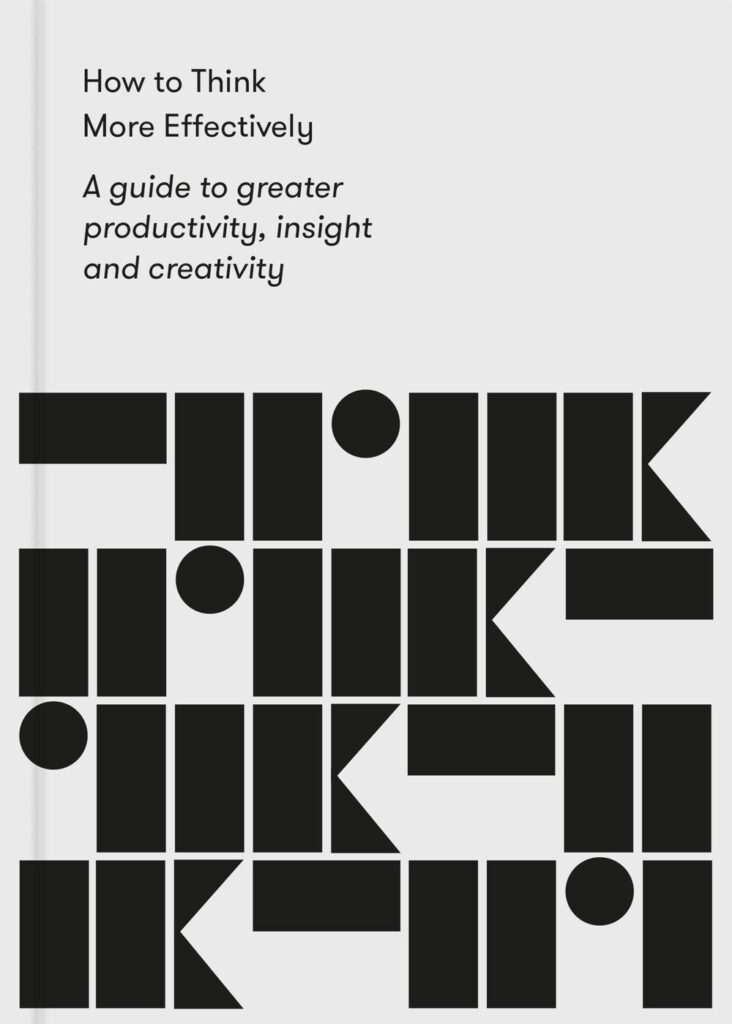Sharing my learnings from the book, How Think More Effectively by The School of Life
How Think More Effectively by The School of Life
We know that our minds are capable of great things because, every now and then, they come out with a brilliant idea or two. However, our minds are also unpredictable, spending large stretches of time idling or distracting themselves. This is a book about how to optimise these beautiful yet fitful instruments so that they can more regularly and generously produce the sort of insights and ideas we need to fulfil our potential and achieve the contentment we deserve. Among other things, we learn how to grasp fragile and flighty thoughts before they disappear through anxiety and fear; at what times of day to try to work and for how long; how to make use of our boredom and instincts, and how to overcome timid and predictable approaches to the largest problems. The result is an operating manual to that most wondrous, though intermittent and always baffling, organ: the human mind.

- You rely on thought to formulate ideas at work, evaluate your relationships, be creative, and hold interesting conversations. So how much time do you spend trying to improve the way you think? If you’re anything like most people, probably not much. This book lays out the key steps that can turn run-of-the-mill thinking into something creative, precise, and profound.
- As rational people, we like to think we attend to the most important things in life first, and only then turn our attention to less pressing tasks. In other words, we think our priorities are pretty much in order. Many people’s priorities are actually mixed up. We spend little time engaging with serious, important questions about the value of our goals – and instead jump straight to trying to make those goals happen.
- Devote more time to evaluating your ideas, values, and goals.
- become aware of how much time you devote to executing your plans, and how much time you spend evaluating and strategizing in a more reflective manner.
- try and get over your discomfort. Fundamental, first-order questions are tricky – contemplating purpose and value can often make us feel uneasy. There’s no quick fix for that: the solution is simply to practice.
- Before you jump straight to the execution of an idea that enters your head, try to spend more time actually interrogating it. Ask yourself searching questions about what you’re doing and what you plan to do – questions about value, purpose, and ultimate significance.’
- Instead of berating ourselves because our ideas proceed by dribs and drabs, we should simply accept our natural human limitations. They can’t be changed – but they can be worked with.
- The most important thing you can do to help the process is buy a notebook and record your ideas in it. By committing your thoughts to paper, you’re allowing yourself to revisit them at a later stage – and giving otherwise transient ideas a real chance to develop and come to full fruition.
- All too often, your most insightful thoughts are the most elusive. One surprising way of capturing your most elusive thoughts is to put down your net and think about something else. Strange though it sounds, some types of low-level distraction can help you catch insightful, flighty thoughts.
- The reason these unexpected insights occur when you’re gently distracted is that a half-occupied mind is more inclined to accept new and unsettling ideas than a vigilant mind on high alert.
- The value of envy lies in the way it reveals your true ambitions. You feel envy when you identify in others something that you desire and lack. By tracing each envious feeling back to its source, you can come a few steps closer to discovering what it is you truly want from life.
- if you want to learn from envy, it’s important to be precise. it’s important to do some analysis. If you don’t, things will remain too vague and muddled to yield any insights – and you’ll never discover what envy can teach you about your desires.
- Thinking about death puts life into perspective.
- thinking about death makes things seem serious because it reminds us our time on Earth is finite.
- The flipside of death is that it can also make our deepest concerns seem completely unimportant.
- Experiencing doubt is one of the core aspects of thinking well. In fact, the best thinkers are very often the most skeptical. If you can’t conceive of being wrong, then you can’t examine your own beliefs in a critical manner. And if you can’t interrogate what you believe, then all of your intelligence counts for nothing.
- genuinely entertain the idea that everything you believe could be wrong.
- Beginning to doubt what you’re told is a key step in becoming a more effective thinker.


Leave a Reply